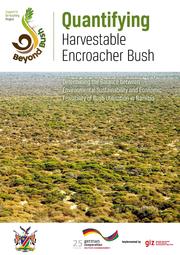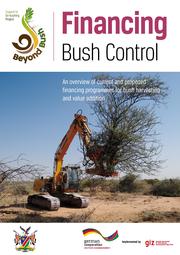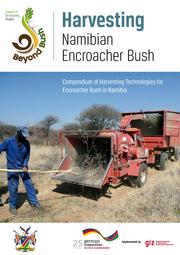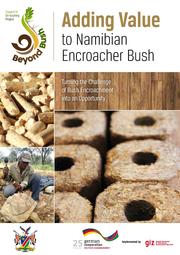Solid Biomass Energy in Namibia
Introduction
Bush encroachment refers to the phenomena of excessive increase in density of woody plants, which then affect the grass/bush balance at the expense of grasses. It has been considered a serious ecological and economic problem in Namibia and affects approximately 260,000 to 300,000 km2 of land in 9 of the country's 14 region.
De-bushing or removal of woody plants will result in increase in grass production (resulting in increase in grazing capacity). Bush or shrubs are also source of energy which includes firewood, charcoal and biofuel.[1]
Quantifying Harvestable Encroacher Bush in Namibia
This publication presents a methodology for the quantification of Namibian encroacher bush and proposes a practical solution for balancing environmental sustainability with the economic feasibility of biomass utilisation projects.
Financing Bush Control
This publication presents an assessment of current incentives, grants and financing products for de-bushing activities in Namibia. Through a supply and demand analysis, it determines their adequacy and proposes feasible adjustments to support the establishment of a sustainable encroacher bush based industry in Namibia.
Harvesting Technologies for Encroacher Bush
This publication presents and compares methods of encroacher bush harvesting. It is based on the study “Compendium of harvesting technologies for encroacher bush in Namibia” (2015) by M.J. de Wet.
Adding Value to Namibian Encroacher Bush
This publication provides an overview of biomass value added products that can be produced from encroacher bush in Namibia. It is based on the study “Value Added End-Use Opportunities for Namibian Encroacher Bush (2015)” by Prof. Dr. R. Trede and Professor Dr. R. Patt of Development Consultants for Southern Africa (DECOSA) CC.
Conclusion
Further Information
References
- Support to de-bushing project - GIZ. https://www.giz.de/en/worldwide/28648.html
- ↑
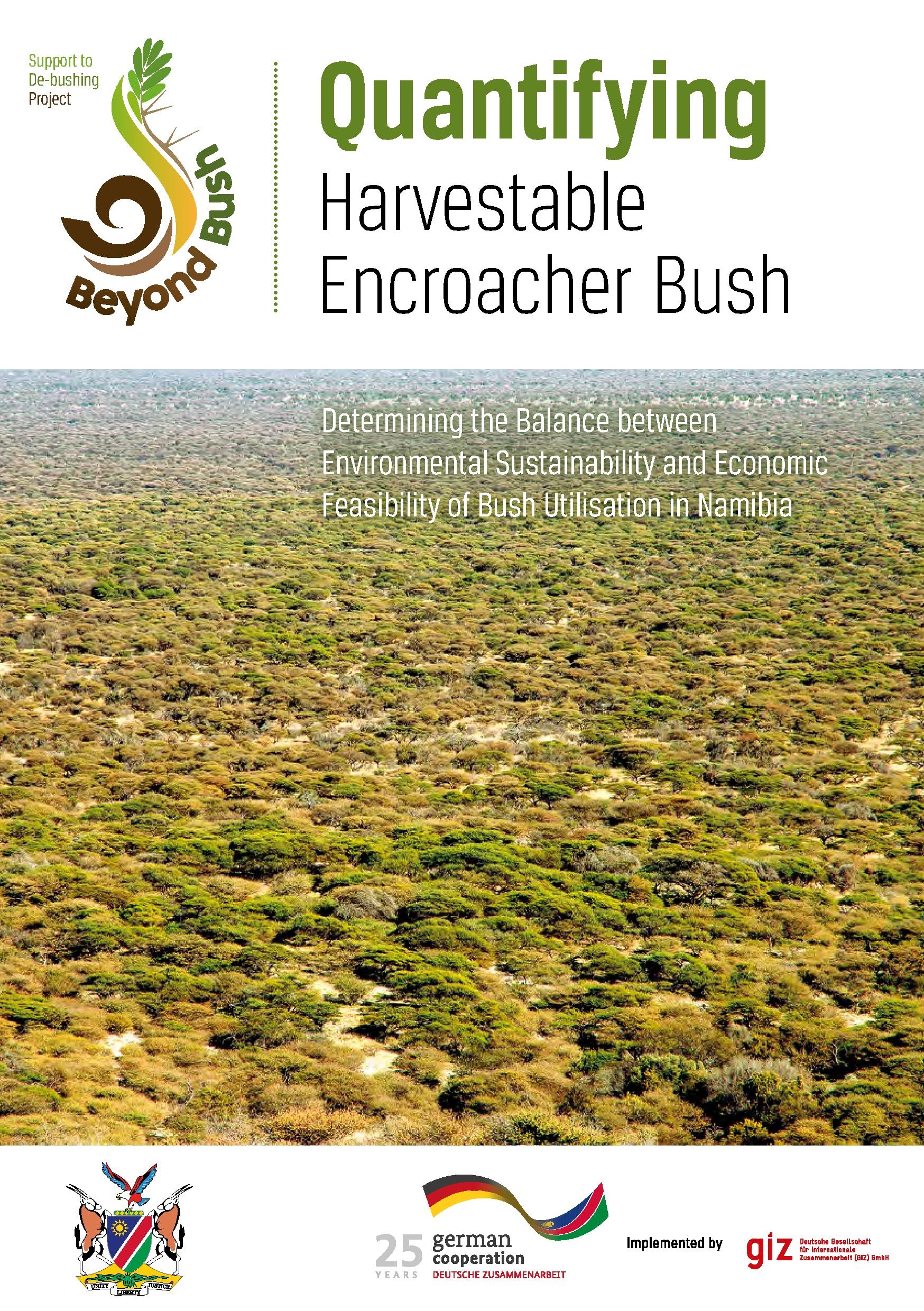 .
.

